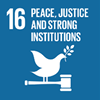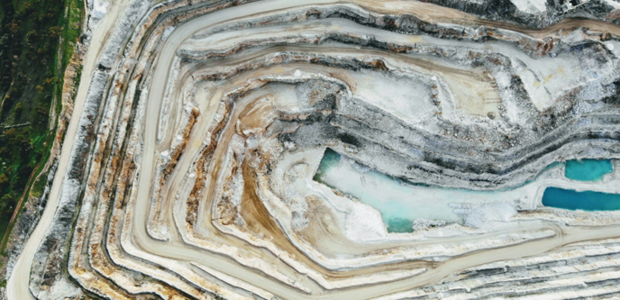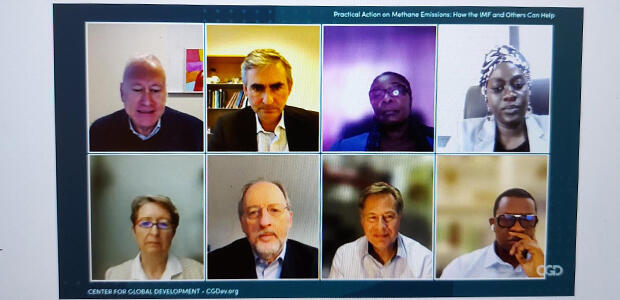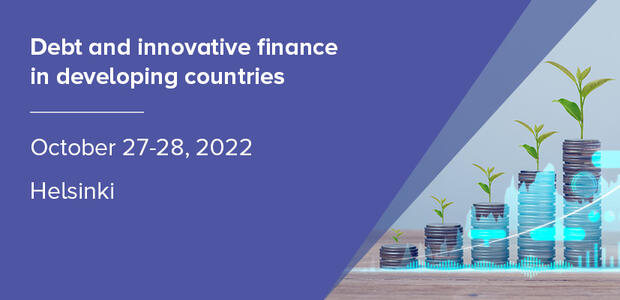
The extractive industries provide substantial government revenues in many low-income and middle-income countries, but efforts to diversify economies have been disappointing. Moreover, there are major revenue shortfalls due to ineffective regulation, under-reporting by producers, poor transparency, and badly designed tax systems. Incentives are still badly titled towards extraction, and away from protecting renewable resources such as biodiversity, forests and water as well as ending greenhouse gas emissions. The COVID-19 pandemic has also caused an unprecedented shock that has exposed the vulnerability of economies dependent on extractive revenues, and the project examines how to manage the revenue risks.
This project builds on the Extractives for Development (E4D) project undertaken by UNU-WIDER from 2014-18. The new project aims to further enhance the links established to senior policy makers, international organizations and the oil, gas and mining industries themselves to share lessons across regions, and to identify opportunities as well as risks (and ways of mitigating those risks), and to chart the future of the global extractives industries and the consequences for both low and middle income countries.
The project will deliver research papers, to be published in the WIDER working paper series. The first set of papers focus on identifying critical issues for the sector, in light of the impact of the COVID-19 pandemic as well as climate change. A monograph will be finalized in 2020, for publication in 2021, building on a book published by Oxford University Press from the previous UNU-WIDER project.
Key questions
- How to ensure that the extractives sector contributes to poverty reduction?
- How to ensure that the extractive sector has a minimal environmental impact?
- How to ensure that revenues for development from extractives are maximized?
Watch this space
All papers, events, briefs, blog posts, and opportunities to engage relating to the project will be available on this webpage.
UN’s 2030 Agenda for Sustainable Development
The research will address SDG 16: Peace, Justice and Strong Institutions. In addition, it will support the attainment of SDG 7 (Affordable and clean energy), SDG 12 (Responsible consumption and production, as well as SDG 13 (Climate action).
Follow the conversation at #Extractives4Dev
This project is part of the Domestic Revenue Mobilization programme.
Team
Focal point: Tony Addison
Project support: Jutta Stenholm
Communications: Anna Toppari
In partnership
University of Copenhagen (UCPH)
Financial support from the Norwegian Agency for Development Cooperation
(Norad)
QUICKLINKS
The Sustainable Development Agenda
This project builds on previous work completed under Extractives for Development (E4D)
Filter by...
Book
Resources MatterAlmost everything that is essential to modern society—transport and power systems, buildings, machinery, and medical devices—depends upon metals, minerals, and stone as well as oil and natural gas which provide the energy for households and...
Working Paper
Extractive industries: transforming companies for better development outcomesCompanies in the oil, gas, and mining sectors face ever intensifying scrutiny over their environmental, social, and governance (ESG) practices and impacts: from civil society but also from investment funds and other stakeholders with ESG mandates...
Working Paper
Extractive industries: transforming states and improving economic managementWhile market mechanisms and private initiatives can deliver much for development, public action is also necessary to: maximize the economic benefits of the extractive industries; manage potentially large capital and revenues flows; minimize adverse...
Working Paper
Extractive industries: addressing transparency, corruption, and theftThis paper analyses the roles that states, civil society, and international actors can play in tackling the weak governance that sometimes leads to resources being used for private rather than public benefit. It discusses the corruption that bedevils...
Working Paper
Extractive industries: enclaves or a means to transform economies?This paper argues for a change in government attitudes to their extractive industries: as enclaves useful primarily as revenue sources. This is too narrow a perspective: it fails to recognize the broader economic linkages that are invariably possible...
Working Paper
Extractive industries: recognizing and managing the risks in resource-dependent economiesThis paper analyses the risks facing resource-dependent countries. These include: (i) economic mismanagement (the ‘resource curse’); (ii) political mismanagement; (iii) environmental damage (climate change and the destruction of natural capital). It...
Working Paper
Extractive industries: imperatives, opportunities, and dilemmas in the net-zero transitionThe extractives industries are highly controversial but remain vitally important in much of the developing world. This paper considers their role in reducing energy poverty and discusses scenarios for the future of the global markets for oil, gas...
Journal Article
Fiscal dependence on extractive revenuesThis study proposes a new measure of Fiscal Dependence on Extractive revenues: FDE. The FDE estimates, simply, the extent to which extractive-producing countries can fund day-to-day government spending with non-extractive revenues.By focusing...
Working Paper
Indicators of illicit activities in gold supply chainsIllicit gold flows constitute a major development challenge for governments and a social responsibility challenge for the jewellery industry, which accounts for the majority of global gold demand. This paper highlights aspects of gold supply chains...
Blog
Rethinking African debt and exploitation of natural resourcesIn Africa, there is a distressing correlation between debt and the need to export raw materials. A new paradigm is needed in which African countries...
Blog
The developing world is facing a new debt crisis: What can we do about it?The recently concluded COP27 in Sharm el-Sheikh had one important outcome for developing countries: the announcement of a loss and damage fund. This...
Blog
Is marine mining a commercial viability for developing countries?The green energy transition is projected to cause an increase in metal demand. Will this demand lead to the opening of deep-seabed mining? As of now...
Working Paper
Fiscal dependence on extractive revenuesThe aims of this paper are twofold. It firstly identifies and discusses the extent to which public revenues from natural resources are adequately captured in existing cross-country revenue databases, before exploring the extent to which such data can...
Journal Article
Discerning trends in international metal prices in the presence of non-stationary volatilityIn this study, we develop an empirical framework that allows us to trace out a time path of metal prices. This framework shows that unpredictable shifts in demand, extraction costs and discovery of reserves, make estimation of the slope of this...
Journal Article
The electric vehicle revolution: critical material supply chains, trade and developmentThe emergence of a mass market for electric vehicles (EVs) offers development opportunities for countries that have abundant resources of cobalt, nickel, lithium, copper, aluminium and manganese. Not surprisingly, developing countries have proposed...
Working Paper
The state and the ‘legalization’ of illicit financial flowsMost research on illicit financial flows (IFFs) has focused on illicit outflows from developing countries and the role of non-state actors in generating IFFs. Less attention has been paid to processes and interfaces through which IFFs enter formal...
Working Paper
Marine mining and its potential implications for low- and middle-income countriesAfter 50 years of optimistic predictions that marine mining will soon take off, it still remains to be seen if and when this will happen. In 2018 the total value of all marine mining, including both offshore mining and the so far non-existing deep...
Working Paper
Tax provisioning by extractive industry multinational subsidiariesExtractive industries are spread across mining of metal and minerals, oil and gas, among others. Multinationals in these sectors are confronted with different challenges ranging from corruption, political risk, economic uncertainty, sunk costs, and...
Working Paper
Looking ahead to COP27—from climate pledges to actionThe global energy transition is happening, but too slowly to limit climate change to acceptable levels, for diverse reasons. Carbon emissions policies and measures focus too little on absolute emission targets and too much on relative measures such...
Working Paper
Unravelling Africa’s raw material footprints and their driversThis paper applies an environmentally extended input–output analysis, leveraging the Eora database, to estimate the global raw material footprints of 51 African nations from 1995 to 2015. It employs least absolute shrinkage and selection operator and...
Blog
Metals for the global energy transition: Opportunities and salutary lessons
In a series of high-level UN Roundtables, in which I participated in 2021, experts and stakeholders explored the risks and opportunities presented by...
Blog
Can the electric vehicle revolution solve the climate crisis and create opportunities for developing countries?
Electric vehicles (EVs) are confidently expected to decarbonize road transportation, contribute substantially to the net zero agenda, and so help to...
Working Paper
Illicit financial flows and country-by-country reporting in extractive industriesEconomic data are important in governing the international political economy. Some of the most widely used macro statistics risk being undermined by systematic misalignment in reporting of economic activity due to illicit financial flows, as well as...
Blog
Want to catch up on UNU-WIDER research? Here are 10 of the most interesting papers published over the last year
In this blog, the managing editor of the WIDERAngle shares his personal view on some of the most important —and potentially overlooked— work recently...
Blog
Ukraine: War, energy, and net zero
Just over seven months ago the United Nations convened its 26th Climate Change Conference (COP-26) in Glasgow, with the world nervously emerging from...
Context
Main subject
Theme: 2019-23, Transforming states
 Join the network
Join the network







